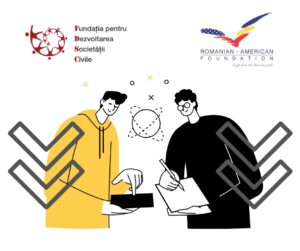The program aims to further strengthen FDSC in its role to facilitate cooperation within and outside the civil society sector, and to establish a starting point for possible further investments in developing the research infrastructure for civil society.
CONTEXT
In 2022, Romanian society faced multiple waves of Covid-19, political changes and the Ukrainian refugee crisis. The humanitarian crisis of 2022 caused by the war in Ukraine and the threats to European values and security have once again brought civil society to the front line of response. Civic actors once again proved their ability to act quickly and pressure the political class to cooperate and be more open to working together. Like the beginning of the pandemic, with the onset of the Ukrainian crisis, the NGO sector needed support to better coordinate with the public and private sectors and to access resources locally or internationally.
In 2022, NGOs have proven to be essential in the emergency response ecosystem (either Covid-19 or the Ukrainian crisis), but despite the fatigue, NGOs are forced to find resources to remain operational , continue to serve their regular beneficiaries and intensify the pressure on the authorities to constantly collaborate with civil society. The role of NGOs in the system of safeguarding democracy and European values has also become crucial, because crises are the perfect moments to legitimize and close the civic space. The economic context (inflation, energy crisis, supply chain disruptions) is already an aspect that affects the NGO sector.

STRATEGY
In this environment, FDSC acts as an umbrella organization and provides support to civil society by responding to its needs, ensures that NGOs have the energy and resources to remain structured and articulated in relation to the public sector, creates a neutral space and offers expertise on topics of interest to the sector, while connecting civil society with international stakeholders.
FDSC thus takes on the following roles:
- Coordinator of the relationship between the NGO sector and key stakeholders (central authorities, the business environment, national and international public or private donors, European structures).
- Supporter and contributor to the development of the civic infrastructure in Romania through direct technical assistance, expertise, facilitating learning and, finally, mobilizer of resources for the NGO sector.
- Promoter of an improved environment for increased data accessibility for civil society.



